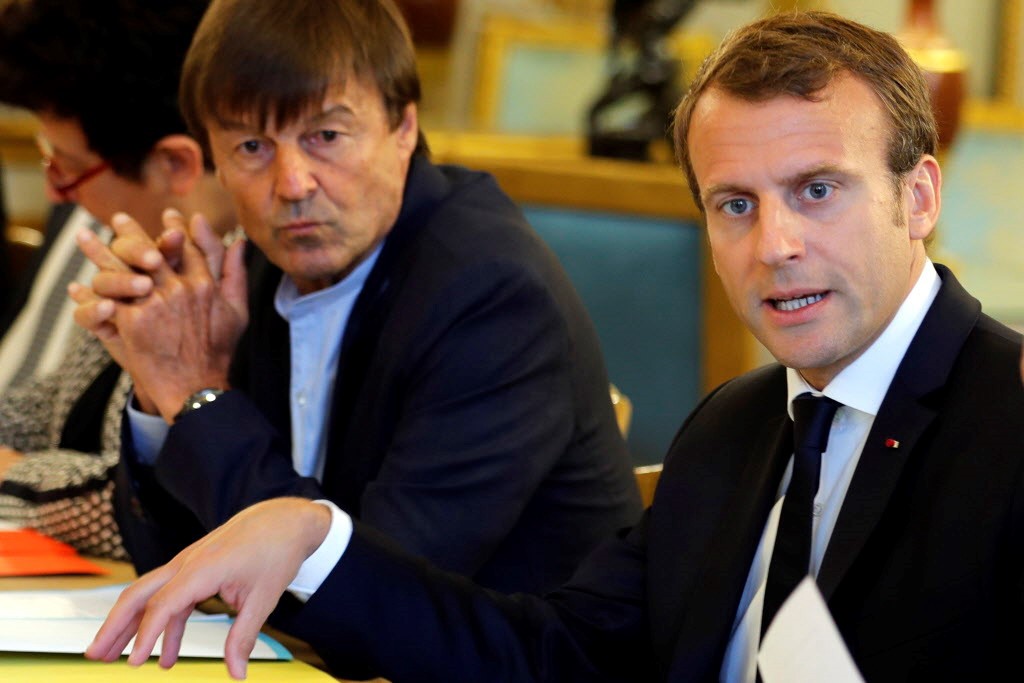PARIS, France — President Emmanuel Macron of France is moving to fill the vacuum in climate action leadership left by President Trump––and to position France at the center of a global capital shift.
Macron’s “One Planet” summit on Tuesday will mark the second anniversary of the Paris climate accord, which went into effect last year and of which the U.S. is still a formal member, despite President Trump’s announced intention to withdraw. This week’s climate finance events in Paris also commemorate the 20th anniversary of the Kyoto Protocol, an earlier climate agreement that the U.S. also helped negotiate and then abandoned.
Annual investment of at least $1 trillion is needed to fulfill the goals of the Paris agreement to keep global warming this century to within 1.5 to 2.0 degrees Celsius (2.7 to 3.6 degrees Fahrenheit) compared to pre-industrial levels. That represents a more-than-tripling of 2016 investment of $287.5 billion, according to Bloomberg New Energy Finance. And the 2016 number was a drop of 18 percent from 2015’s roughly $350 billion.
This week’s talks may be the most ambitious attempt yet to close the gap in funding for transitioning to renewable energy and modernizing infrastructure, as well as for helping countries adapt to unavoidable climate impacts.
“We are in the process of aligning the entire financial system with low carbon, resilient development,” Patricia Espinosa, the United Nations’ top climate change official, said in one of Monday’s keynote addresses
Tipping point?
Current funding falls many degrees of magnitude short of the necessary levels.
“I think it’s clear we haven’t reached the kind of financial tipping point we need,” Sven Harmeling, climate change advocacy coordinator with Care International, said in an interview on the sidelines of the talks.
Among the positive signs: Organizers said participation in Monday’s Climate Finance Day included more and higher-level finance officials than the two previous editions of the event. Three round tables featured officials from entities as varied as BNP Paribas, Japan’s Government Pension Fund, BlackRock investments, the African Investors Network for Climate, and the People’s Bank of China, all touting specific initiatives. There were multiple calls to action, including several for a worldwide price on carbon.
Renewables are no longer ‘alternative.’ Fossil fuels are ‘legacy.’
Japan’s Hiro Mizuno, managing director of the world’s largest public pension fund, for example, stated that the fund is working with investment managers to make the entire portfolio more sustainable. BlackRock Vice-Chairman Philipp Hildebrand said investment firms needed to put more pressure on companies to be environmentally responsible.
Bruno Le Maire, France’s minister for the economy and finance, used his closing address Monday to commit French public finance institutions, including the almighty Caisse Des Depots, or CDC, with 600 billion euro (around $720 million) in assets, to incorporate climate consideration in their investment policies. It is not clear at this point how this commitment adds to prior climate commitments by the same institution. The CDC said previously it is aiming to reduce its portfolio’s carbon footprint by 20% by 2020. The government also announced it will require all individual life insurance products to offer a climate investment option.
Climate champion
Macron has worked hard to assert France’s role as a protagonist on the world stage since becoming president seven months ago. This week’s events are part of that process.The centerpiece of the week is Tuesday’s One Planet Summit. The French president will be joined by heads of state of government from Mexico, the Netherlands, Norway, and the U.K., and senior minister-level delegates from at least 50 more countries (California Gov. Jerry Brown will be the most high-profile U.S. representative).
Expected on Tuesday are news of a carbon trading market in China, new rules to limit greenhouse gas emissions on international shipping, a new round of financial commitments from some industrialized countries to help poor nations adapt to climate change, pressure to further limit coal use, as well as highly touted announcements from private companies, including insurer AXA, to software maker Microsoft and car giant Toyota. Conference organizers have hinted at “surprise” announcements from the European Commission and the French government.
Later in the week, France will co-host a Group of Seven (G-7) round of talks on finance along with G-7 President Italy and talks on environmentally friendly investing hosted by the European Investment Bank.
The $1 Trillion Challenge: Can Clean Energy Investors Fulfill Global Climate Deal?











